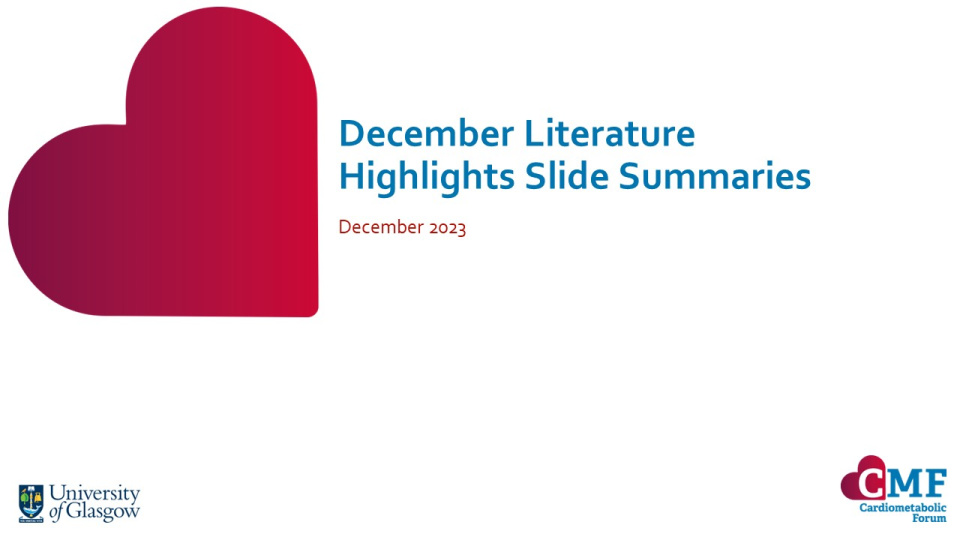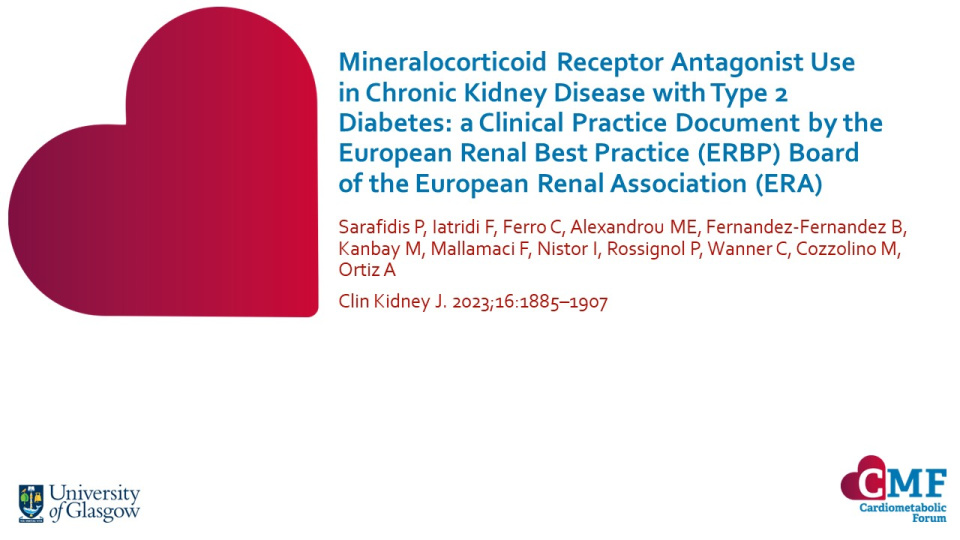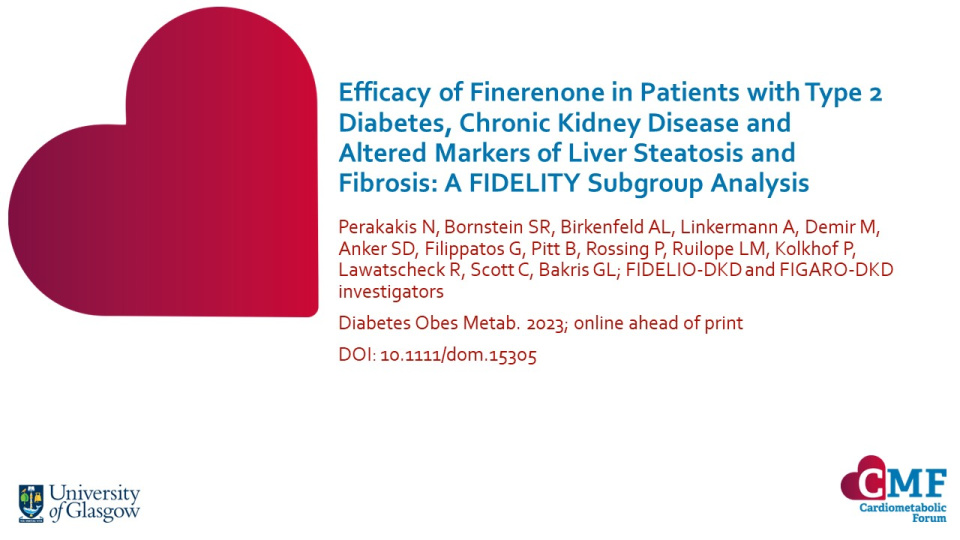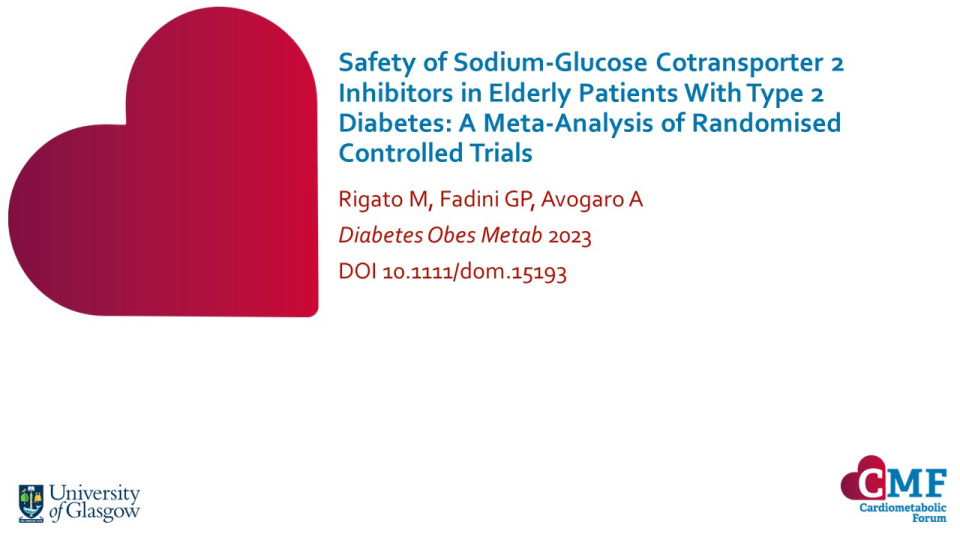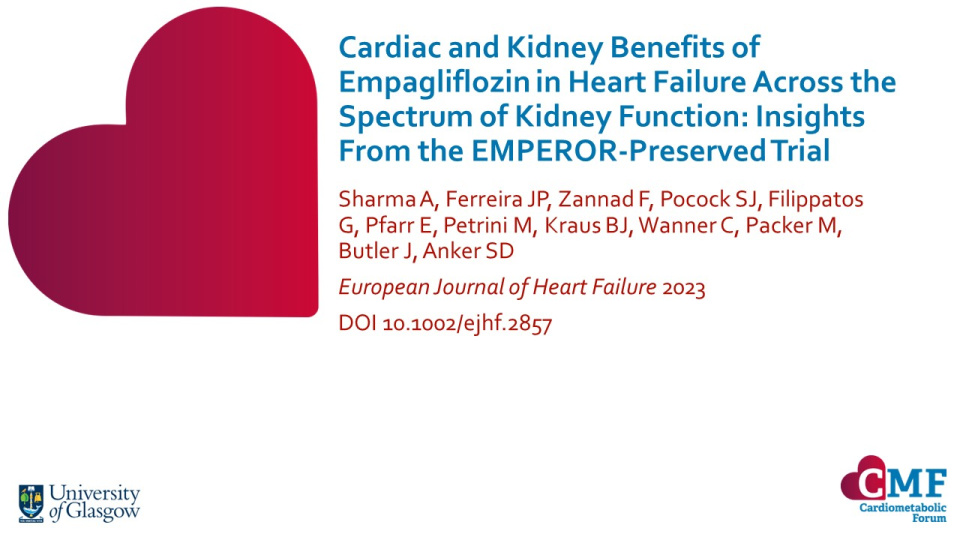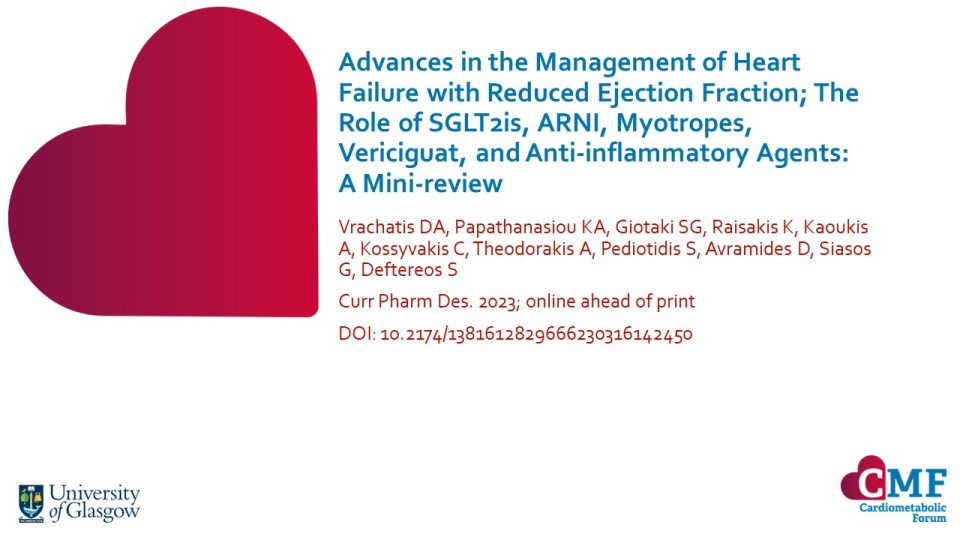Publications
Stay up to date with our literature reviews which are curated by experts to feature the most important publications released each month. Explore our publications for access to concise summary slides for your own use.
Mineralocorticoid Receptor Antagonist Use in Chronic Kidney Disease with Type 2 Diabetes: A Clinical Practice Document by the European Renal Best Practice (ERBP) Board of the European Renal Association (ERA)
Clin Kidney J. 2023;16:1885–1907
Patients with CKD and T2D are at high risk of both developing kidney failure and of CV events. With RAS blockers, residual risk of CKD progression remains high and no significant reduction in CV events and mortality has been seen in major studies in patients with CKD and T2D. Steroidal MRAs have been shown to reduce albuminuria in individuals on RAS monotherapy, but widespread clinical use is limited by the risk of hyperkalaemia and the absence of trials with hard renal outcomes. In recent years, non-steroidal MRAs have received increasing interest due to their better pharmacological profile, particularly finerenone, which effectively reduced CKD progression and CV outcomes in participants with T2D in Phase 3 trials.
Keywords:
Efficacy of Finerenone in Patients with Type 2 Diabetes, Chronic Kidney Disease and Altered Markers of Liver Steatosis and Fibrosis: A FIDELITY Subgroup Analysis
Diabetes Obes Metab. 2023; online ahead of print DOI: 10.1111/dom.15305
This post hoc subgroup analysis from FIDELITY investigated the effect of finerenone on liver function, cardiovascular and kidney composite outcomes in patients with CKD and T2D, stratified by their risk of liver steatosis, inflammation and fibrosis.
Keywords:
Safety of Sodium-Glucose Cotransporter 2 Inhibitors in Elderly Patients with Type 2 Diabetes: A Meta-Analysis of Randomised Controlled Trials
Diabetes Obes Metab 2023 DOI 10.1111/dom.15193
SGLT2is are effective in preventing adverse outcomes of heart failure and chronic kidney disease, which are highly prevalent in the elderly. While SGLT2is are generally well tolerated, elderly patients may be more susceptible to developing AEs reported with this class of drug, such as infections, fracture, and AKI. Clinical experience with SGLT2is in the elderly and very elderly is limited.
Cardiac and Kidney Benefits of Empagliflozin in Heart Failure Across the Spectrum of Kidney Function: Insights From the EMPEROR-Preserved Trial
European Journal of Heart Failure 2023 DOI 10.1002/ejhf.2857
In the EMPEROR-Preserved trial, empagliflozin was found to improve the clinical outcomes of patients with heart failure and preserved ejection fraction (HFpEF). This pre-specified analysis sought to explore the effect of empagliflozin on cardiovascular (CV) and kidney outcomes across different levels of kidney function.
Advances in the Management of Heart Failure with Reduced Ejection Fraction; The Role of SGLT2is, ARNI, Myotropes, Vericiguat, and Anti-inflammatory Agents: A Mini-review
Curr Pharm Des. 2023; online ahead of print DOI: 10.2174/1381612829666230316142450
This mini-review summarises recent data on new treatments for HFrEF. The article highlights that SGLT2i have revolutionised the management of HFrEF via significant reductions in CV mortality and HF hospitalisations. The role of sacubitril/valsartan as a potential replacement for ACEis and ARBS is discussed. New data on promising disease-modifying therapies are highlighted including vericiguat, which restores the impaired cyclic guanosine monophosphate pathway, and omecamtiv mecarbil, which stimulates cardiac myosin without marked arrhythmogenesis. The lack of success in developing anti-inflammatory agents for HFrEF, despite inflammasome activity being implicated in HFrEF pathophysiology, is discussed.

